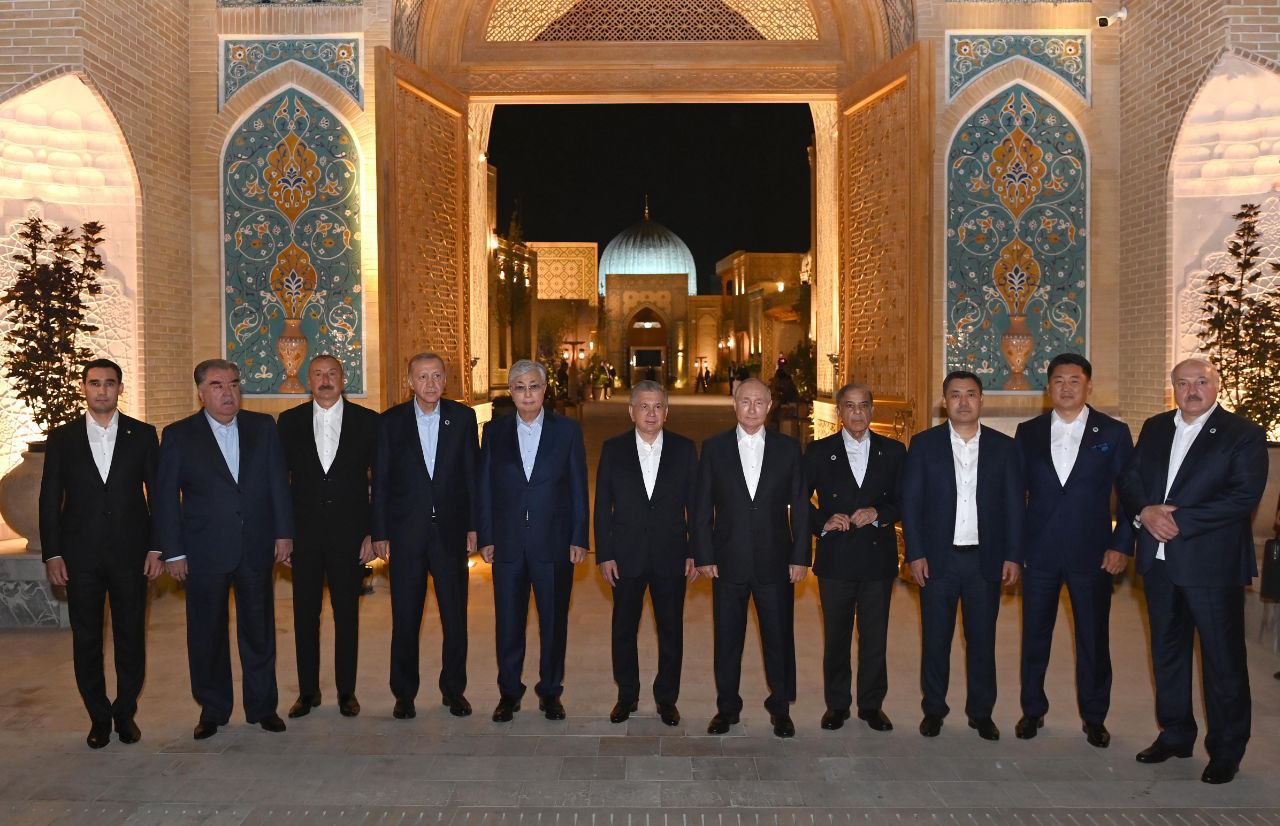
Sergey Saenko, international observer
On September 15-16, Samarkand hosted a summit of the leaders of the member states of the Shanghai Cooperation Organization (SCO or the Organization). The Uzbek city, famous for its centuries-old traditions, received the heads of state that determine modern world politics. The current summit was also attended by the leaders of the SCO observer countries and the heads of partner organizations – the UN, the CIS, the CSTO, the EAEU and others. In total, heads of 15 states and heads of a dozen international and regional organizations came to Samarkand.
Recall that the SCO is a permanent regional international association, the establishment of which was announced on June 15, 2001 in Shanghai. At the moment, Russia, India, Kazakhstan, Kyrgyzstan, China, Pakistan, Tajikistan and Uzbekistan are full members of the Organization, and Afghanistan, Belarus, Iran and Mongolia have the status of observer countries. In addition, the status of dialogue partner countries was assigned to Azerbaijan, Armenia, Cambodia, Nepal, Turkey and Sri Lanka.
In Samarkand, Iran joined the permanent members and Egypt, Qatar and Saudi Arabia joined the dialogue partners of the Organization. The process of raising the status of Belarus to the level of a full participant has begun, with general support. Turkish President Erdogan also expressed his intention to follow the example of Minsk. In addition, about ten countries, including Bahrain, Maldives, Kuwait, the United Arab Emirates and Myanmar, have expressed a desire to become partners in the SCO dialogue.
We emphasize that the current SCO summit in Samarkand was unique in its own way, since its decisions in many ways can radically change the existing world order. First of all, important statements were made at it, which the US and the European Union will obviously not like, because the SCO is aimed at expansion and sets itself specific goals. The summit clearly showed that half the world is against the hegemony of the United States, which dictates its rules to the world community. However, business goes first.
Let’s start with Russia. In his speech at the SCO summit in Samarkand, President Vladimir Putin said that we are witnessing irreversible transformations in world politics and the economy. The head of state stressed that the cooperation between the countries of the Organization is built on approaches devoid of selfishness, which cannot be said about the policy of the West. At the same time, the Russian leader noted that the growing role of new centers of power is becoming more and more clear. According to Vladimir Putin, it is time for Western countries to stop using economic selfishness and illegal sanctions in politics.
In turn, Chinese leader Xi Jinping urged the countries of the Organization to prioritize security issues. “We should support each other’s efforts to protect security and development interests. It is important to prevent attempts by external forces to provoke a color revolution, and jointly oppose interference in the affairs of other countries under any pretext,” the Chinese leader said.
Indian Prime Minister Narendra Modi noted in his speech that the pandemic and the Ukrainian crisis have caused disruption in supply chains around the world. In this regard, the SCO countries need to make efforts to create conditions and ensure reliable supplies in the region. According to him, the SCO member states are making an invaluable contribution to economic recovery, they account for approximately 30% of global GDP and 40% of the world’s population. “That is why India stands for the development of cooperation among the countries of the organization,” said the Prime Minister of India.
As a result of the work, the SCO member countries approved the Samarkand Declaration. The document says that the member states of the Organization will contribute to countering terrorism, while emphasizing that this confrontation cannot be a pretext for interfering in the internal affairs of other countries. The declaration recorded support for nuclear disarmament and noted that “the expansion of the SCO and the deepening of international cooperation will serve to ensure security and stability in the region”. The countries that are members of the Organization condemned the introduction of trade restrictions that threaten the global economy and supported an increase in the number of transactions using national currencies. The leaders of the SCO states also approved a package of more than 40 documents on cooperation in various sectors.
The heads of the SCO countries also adopted a Comprehensive Action Plan for 2023-2027 for the implementation of the provisions of the Treaty on Long-term Good Neighborliness, Friendship and Cooperation of the SCO Member States. This document, in particular, provides for coordinated steps to further deepen cooperation in the areas of politics and security, trade and the economy, culture and humanitarian ties.
In conclusion, we note that the chairmanship of the SCO for the next year passes from Uzbekistan to India. In this regard, Vladimir Putin thanked the Uzbek leader Shavkat Mirziyoyev for the successful chairmanship of the Organization and wished success to India, which took over the honorable and responsible baton.
“I would like to thank the president for the hospitality, for organizing our work and congratulate Uzbekistan on its successful chairmanship of the SCO, and also wish success to our Indian friends, who are now taking over the chairmanship of our association”, the Russian president said.

Location: 103 Kurortniy Prospekt, Sochi, Russia. The Radisson Lazurnaya Hotel
There must be time
Here are the terms of participation
Comments
0